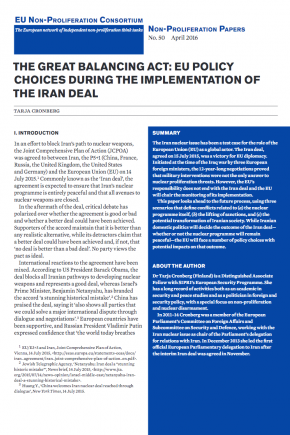The Great Balancing Act: EU Policy Choices during the Implementation of the Iran Deal
The Iran nuclear issue has been a test case for the role of the European Union (EU) as a global actor. The Iran deal, agreed on 15 July 2015, was a victory for EU diplomacy. Initiated at the time of the Iraq war by three European foreign ministers, the 12-year-long negotiations proved that military interventions were not the only answer to nuclear proliferation threats. However, the EU’s responsibility does not end with the Iran deal and the EU will chair the monitoring of its implementation.
This paper looks ahead to the future process, using three scenarios that define conflicts related to (a) the nuclear programme itself, (b) the lifting of sanctions, and (c) the potential transformation of Iranian society. While Iranian domestic politics will decide the outcome of the Iran deal— whether or not the nuclear programme will remain peaceful—the EU will face a number of policy choices with potential impacts on that outcome.

